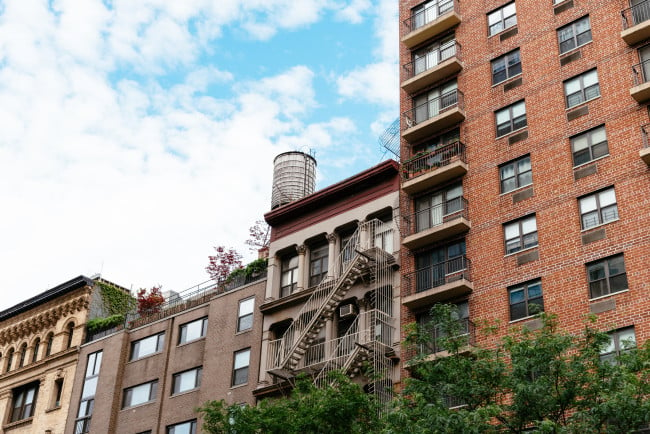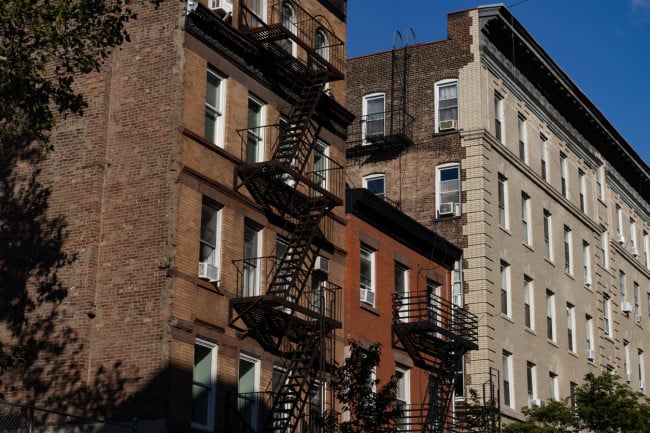Is now a good time to refinance my mortgage? How long will it take?
- If you can wait, economists expect mortgage rates to drop further this year
- Consider how long you plan to live in your apartment and your closing costs

Refinancing a mortgage in NYC usually takes between 30 to 60 days, but can take longer depending on your board, your bank, and your own preparedness.
iStock
How long does it take to refinance a mortgage in NYC? Is now a good time to do it? What factors that could speed up or slow down the process?
If you’re able to wait for mortgage rates to decline, it may make more sense for you to refinance your debt later to secure lower monthly payments, according to our experts. Either way, you need to consider if refinancing is worth the closing costs.
Mortgage rates already dropped to their lowest level in more than a year last week—hovering around 6.47 percent on average for a 30-year, fixed-rate loan—after a weaker-than-anticipated jobs report. But economists expect rates to drop even further provided the Federal Reserve cuts its benchmark interest rate this year as expected, said Melissa Cohn, regional vice president of William Raveis Mortgage.
“Take into consideration that the Fed is likely to start cutting rates in September and that will just be the first rate cut of what will be a rate-cutting cycle,” Cohn said. “Rates will continue to move in a downward pattern over the next two years.”
So with rates expected to decline more, you may be able to secure an even lower rate by waiting, provided nothing unexpected happens in the economy, said Jonathan Miller, president and CEO of appraisal firm Miller Samuel.
“Rates are in the mid-6 percent [range], which is still double what many people enjoy,” Miller said. “If we’re not going to have a black swan event like Covid-19, it seems to make more sense to wait.”
Still, your own finances will have a big impact on when you choose to refinance. Read on for what to take into consideration before refinancing your mortgage.
Editor’s note: A previous version of this story was published in June 2018. We’re updating it with new information for August 2024.
How long do you plan to stay in your apartment?
If you plan to live in your apartment for many years to come, you’ll have more time to recoup what you spent to refinance your mortgage through lower monthly payments. But if you refinance that debt now and then decide to sell your unit, you’ll see minimal or no savings.
“You’ll want to believe that you’ll stay in the property long enough to benefit from refinancing,” said Pat Lavell, branch manager at CrossCountry Mortgage.
How much will it cost to refinance?
It will take longer to see those benefits if it’s more expensive for you to refinance as well.
Refinancing a co-op in New York City usually costs around $5,000, Cohn and Lavell said. But condo closing costs tend to be much higher because you need to pay a mortgage recording tax, though you can avoid paying the full tax through a consolidation extension and modification agreement (CEMA). You could pay more than $10,000 to refinance a $750,000 loan, Cohn said.
You can roll those closing costs into your new loan, so you don’t need to come up with all that cash at once, Lavell said. But you need to make sure that those closing costs will be worth your long-term savings.
When will you break even?
The amount of time you plan to spend in your apartment and closing costs for refinancing will both impact how long it will take you to break even. Luckily the math is pretty straightforward: just divide your total closing costs by your monthly payment.
For example, say your loan closing cost was about $5,000 and you will save $250 per month by lowering your rate, Lavell said. That means it will take you 20 months to recover the cost of refinancing your mortgage, or $85,000 over 30 years.
Cohn recommends only refinancing if you’ll recoup the costs in about 18 months, just in case you do end up relocating within the next two to three years.
“We all want lower rates but if it's going to cost more than the savings of the monthly payment to get there then it's not worthwhile,” Cohn said.
How long will it take?
Refinancing your mortgage should take between 30 to 60 days, though the timeline will depend on your bank, your co-op board, and your own preparedness.
"The length of time it takes to refinance is dependent on the bank’s process and the form of ownership," said Deanna Kory, a broker at Corcoran. "Banks usually take up to four weeks to issue a commitment letter on NYC real estate. After that, it is a matter of additional processes the bank has to go through depending on whether the property is a co-op, condo, or house."
For owners of condos and townhouses, the process is more straightforward, but co-op residents will need to get board approval, Kory said. Expect the board to ask you to share financial information, including your tax returns, in order to demonstrate that you'll be able to keep up with payments on your new loan.
"The board can turn down the borrower if they feel that [they] cannot handle the payments and maintenance," Kory said. "The board approval can add another one to six weeks to the process, depending on whether or not the co-op or managing agent is stringent or relaxed."
The appraisal process, too, can cause potential delays, particularly if you don't agree with your appraiser's assessment, but there are some aspects of refinancing over which you have control. Checking your credit ahead of time, and having all your paperwork in order, for instance, will help speed things along with both your board and the bank.
—Earlier versions of this article contained reporting and writing by Alanna Schubach.



























